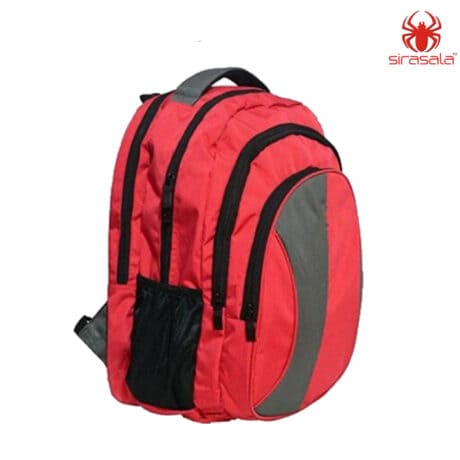As a result of the ministry of education’s new policy, students will no longer have to lug heavy school bags on their backs.For several years, the weight of school bags has been a source of contention in educational circles. Child counsellors, psychologists, and educators have frequently stated that heavy bags are harmful to students’ health and well-being. Several surveys and studies conducted by the NCERT (National Council of Education Research and Training) revealed that carrying heavy bags was bad for students’ health and resulted in stunted growth, particularly for those in pre-primary and primary classes.
Taking note of this, the Union Ministry of Education announced the ‘Policy on School Bag 2020’ on December 8 in accordance with the New Education Policy 2020. The total weight of a student’s school bag (for students in grades 1–10) should not exceed 10% of their body weight, according to the policy. The ministry has also suggested that schools regularly monitor the weight of the bags.
A young child panting up the stairs, hampered by a heavy backpack, is a common sight in schools. The negative impact of those backpacks on children’s spinal posture, foot shape, and walking pattern has been well documented. “Children usually compensate for the load on the back by leaning forward, straining the muscles of the neck, back, and shoulders,” says Pallavi Rao Chaturvedi, vice-president of the Early Childhood Association. Situations like these were previously overlooked due to the number of books and other necessities the children carried in their bags. However, the School Bag Policy 2020 proposes various measures to alleviate the burden on these children.

Students will be relieved by the policy recommendations; not only will the weight on their backs be reduced, but so will the mental baggage they carry. “It’s a step toward changing the perception of studies being a burden or obligation,” says Rajat Soni, a teen-life and parenting coach. The overarching goal is for students to understand the purpose of education—to prepare them for adulthood. For example, exams are not intended to judge them as individuals, but rather as a tool for measuring knowledge gained. “We are working to make skills a priority—prioritization, time management, thought structuring,” Soni elaborates.
Children become tired as a result of carrying excessively heavy bags. Heavy bags, according to experts, can cause shoulder pain, neck and arm pain, headaches, and lower back pain. The physical burden of a heavy bag imposes a mental strain as well—a constant reminder of the weight of studies. “Different weight as per various standards will be the new norm,” psychologist Anuja Kapur explains. Random checks should be conducted throughout schools using a digital weighing scale to ensure that students’ well-being is not jeopardised.”
Bag weight should be between 1.6 kg and 2.2 kg for class 1, 1.7 kg and 2.5 kg for classes 2 to 5, 2 kg and 3 kg for classes 6 to 8, 2.5 kg and 4 kg for classes 9 and 10, and 3.5 kg to 5 kg for classes 11 and 12. Parents, for their part, can ensure that their children only carry the books and notebooks that are required by their timetables.
